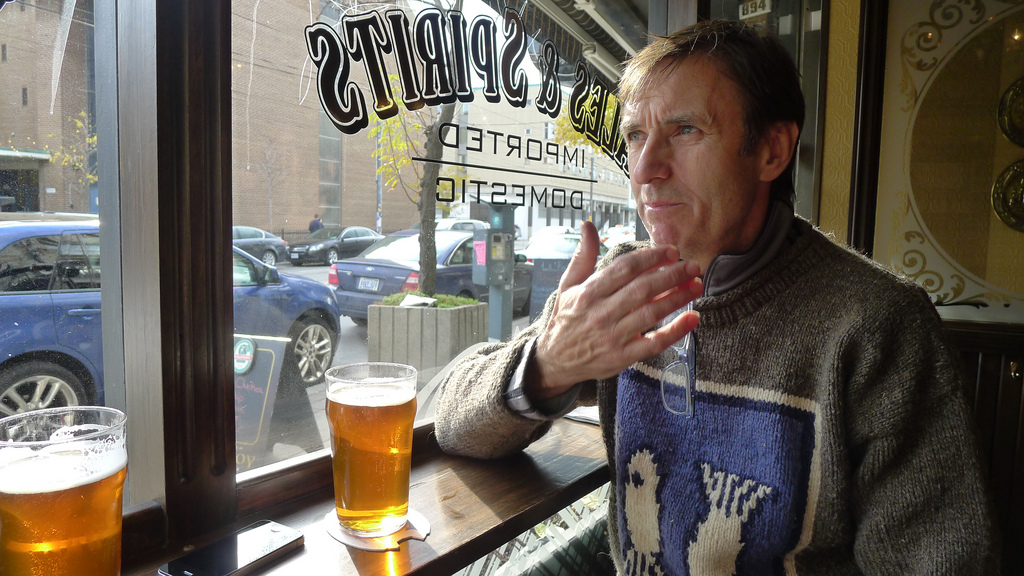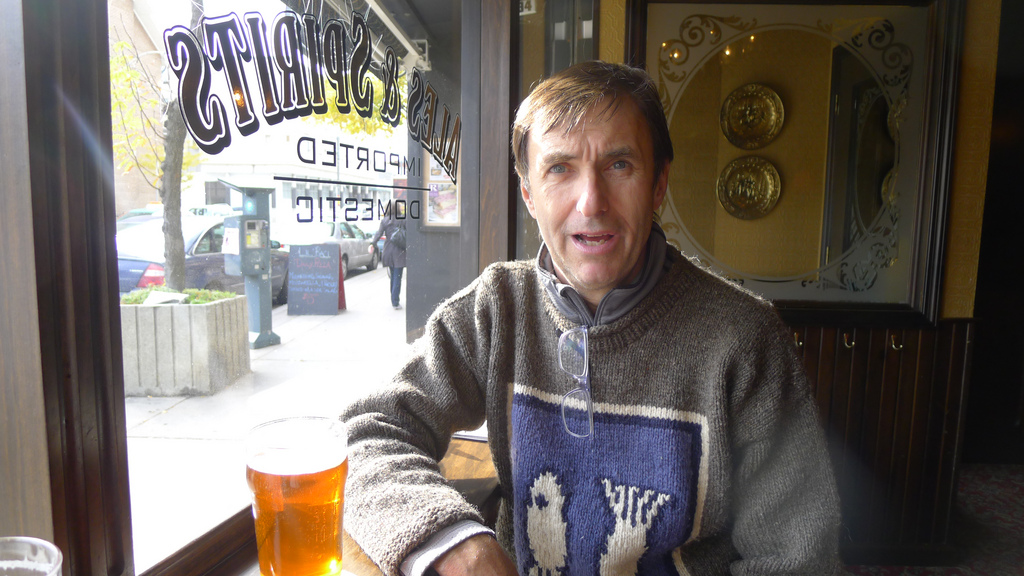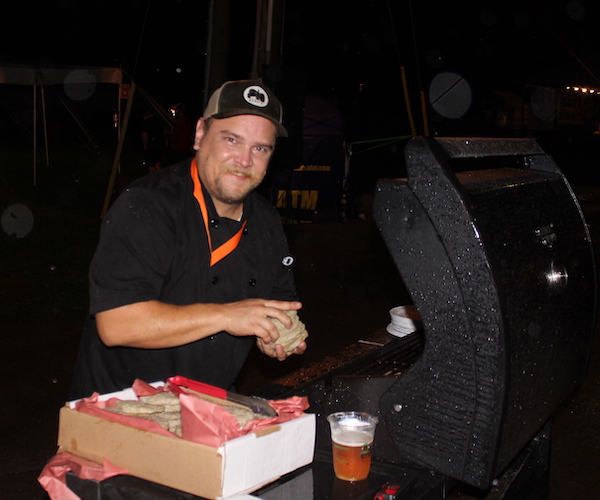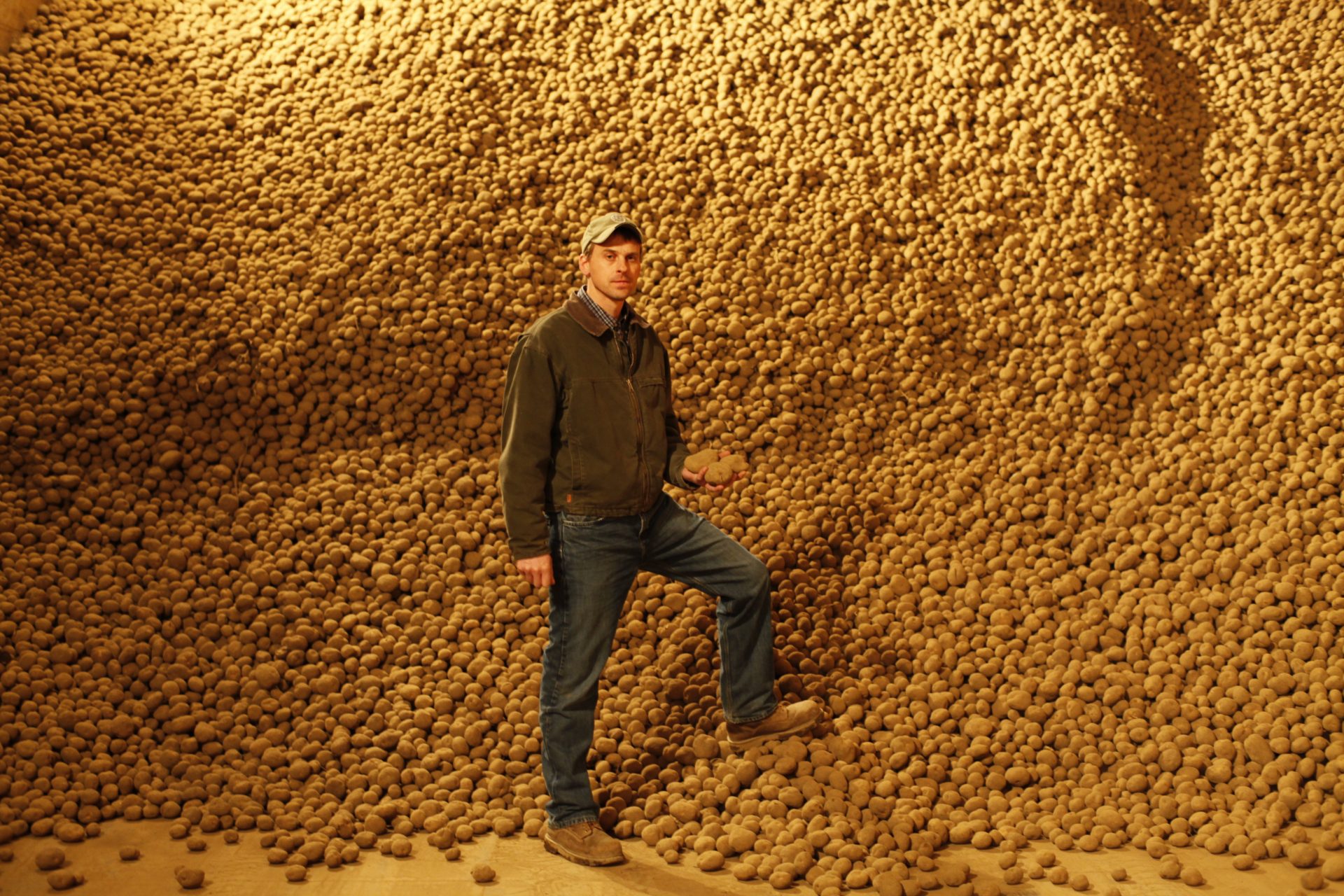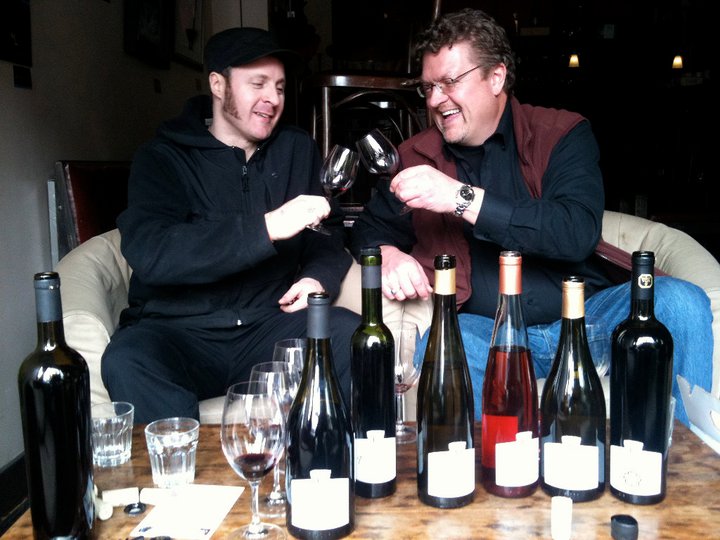This week we sit down with Dan Donovan, a gentleman who, along with his wife Kristin, runs Toronto’s Hooked fishmongers.
When it comes to the myriad complex arguments surrounding the sustainability of the fish in our planet’s oceans, lakes, and rivers, the waters can get very muddy indeed. Many tangled nets of bureaucracy, label regulation, protectionism, cronyism, and downright exploitation lie in wait to ensnare many of those who choose to dip their toes into this debate’s potentially treacherous fishing grounds.
Thankfully Dan Donovan is a straight shooter, and he was happy to give us his take on some of the more difficult questions that surround the perennially hot topic that is sustainable seafood.
GFR: So, with Hooked now have been open for four years, what changes have you seen in the world of sustainable fish in Canada?
DD: Initially our product choices were based on the sensibilities that we evolved personally as chefs and restaurateurs, and then as parents. In our role as informed buyers who act on behalf of other chefs, parents and concerned individuals, those ideas have deepened into a set of values that guide us.
Generally, we see the imperative for responsible choices gaining broader acceptance. This is not unique to seafood, it is true in other areas of purchasing. In our experience, this is a broad based shift that spans all ages and income groups.
At the same time, the rhetoric around seafood sustainability has grown as more interested parties try to influence consumers. The effect is that we find both chefs and the public better informed and yet more confused now than ever.
The seafood industry has been slow to embrace the challenge of sustainability, initially putting more effort into disputing the science and obfuscating the facts than into changing outdated practices that contribute to the problem. We are seeing more positive developments as consumers become more aware, but it is slow.
GFR: What do you see as the greatest single threat to the welfare of our fish stocks at the current moment in time?
DD: The greatest single threat is questions that try to reduce a complex problem to a bullet point
GFR: I’ll rephrase that… What do you see as the greatest threats to the welfare of our fish stocks at the current moment in time?
Our fish stocks are a gift of nature that don’t fit neatly into first world ideas of property. Over the past few decades, many countries have adopted ideas like Individual Transferable Quotas (ITQ’s). ITQ’s operate under the simple logic that a harvester will take better care of a resource he owns than a resource that is shared among a group.
In practical terms, ITQ’s make a wild resource private property. In most Canadian examples, the quotas were given free and without provision for ongoing royalties.
By design these quotas are saleable, and over time ownership of ITQ’s has consolidated in fewer hands. In many regions, single companies own the majority of the quota. Each ITQ assigns a percentage of the Total Allowable Catch (TAC) to the owner. At intervals, the stock management plan will adjust the TAC which will impact the actual number of fish that can be taken.
Owners of the quota often don’t fish or even own boats, rather they rent the right to fish to individual harvesters who invest in the boats and do the fishing. Some evidence suggests that when the TAC is decreased, the lease fee for the quota increases, maintaining the revenue to the owner of the quota.
The net effect of this system is worse than before;
• the resource has become an investment and is expected to deliver competitive returns
• the people who do the fishing still have no stake in the continuing health of the stocks, and
• a resource that belonged to the Canadian people has been given away.
GFR: How did you observe Chefs (and the consumer) understanding and embracing what you are doing at Hooked?
How long did they take to “get it”?
Regarding the consumer part of that question… when you opened in Kensington you were the young bucks on Fishmongers Row… How did that pan out?
As a starting point we could take their interpretation of your pricing compared to that of your competitors… obviously that is like comparing apples and orangoutangs though!
DD: We opened Hooked in Leslieville to be part of the neighbourhood shopping routine. People initially come to Hooked for different reasons; some may choose us because we are convenient, others for the selections we have, or because the principals that drive our decisions resonate with them. But ultimately the customers who, as you say “get it”, return and choose to make Hooked a part of their shopping routine because they are more satisfied with the product we offer. When we didn’t see what we were doing reflected along “fishmongers row” in Kensington Market, we were comfortable that we had a place there. That has proven to be the case, and the Kensington Market store has developed a loyal following from within the market regulars and beyond.
As seasons change, we strive to offer a selection of seafood, at a range of prices, that can create healthy, satisfying meals for any budget. Our own values dictate choices from the broad range of species available, fish that offer fair prices to the harvester. At the same time, the harvesting does no damage to succesive generations.
Pricing is tricky, it works for faceless commodities and is a great tool when choosing among equal options. I guess we believe that food should not be a commodity that trades at the lowest possible price – that is Walmart’s challenge.
Our job is to find good, clean, and fair options, tell that story to our customers so that they can then evaluate the merits of the product on something other than price. Ultimately this will reward better quality fish, caught with better methods and handled with care.
GFR: Do you feel that there is anything that the three different levels of government could do to promote/sustain the whole concept of sustainability of our oceans, rivers, lakes?
DD: Sure, sustainability should drive all government decisions.
The duty to protect resources that are the birthright of present and future Canadians should be the very heart of the mandate of a democratically elected government. In this regard, we have failed miserably and are treating these finite gifts of nature like some sort of cash machine.
It is insane that at a moment in history when wild fish stocks are in decline that we are caught up in a rush to sell our fish for the lowest price. Policy decisions and export incentives that are geared to “compete on world markets” directly impact the economic and social sustainability of coastal communities.
There is plenty of work to be done on ocean warming and acidification, on curbing habitat destruction that is occurring through pollution, forestry, mining and shoreline development, all of which are significant factors in declining fish stocks.
GFR: What with there being so many different accreditation and labelling systems from many different bodies, I feel that at the end of the day the average customer is simply confused. What could make this situation better?
DD: There is no easy answer to this. At Hooked, we rely heavily on the work of these groups including NGO’s, industry associations, and private company labels that contribute to research in this area. It is a big job, and for most people it is impossible to stay current with the volume of research that is available. Some of the labels represent great work and many more are sophisticated marketing efforts. It is important to be knowledgeable of the biases of the authors, and critical of the motives of the programmes.
Ultimately, sustainability is not a one size fits all concept. I think it is useful for each of us to examine our own ideas about ecology and conservation and adopt a set of principals that can guide our decisions. That may include which voices we trust. Invariably there will be trade offs – local conventional vs imported organic, and we need to choose which of our ideals will prevail on that purchase.
GFR: Ocean Wise appears to have achieved much greater engagement in the West of Canada than it has in the East, most probably due to its connection to the Vancouver Aquarium. What do you see as the way forward for Ocean Wise?
DD: That’s a tough question. I guess it depends on what you mean by engagement.
Ocean Wise provides three distinct services; it directs primary research into specifically Canadian fisheries, it provides education on marine issue to consumers, chefs and the industry, and it provides the red/green rating scheme.
This last role has been taken up by other groups including the Marine Stewardship Council (MSC) which has been very successful in rating just about everything green. I’m not sure what the future of those programmes are as there seems to be an inherent contradiction between the goal of approving more fisheries and the goal of conservation.
I would hope that Ocean Wise continues to do amazing work in consumer and chef education and to direct research into Canadian fisheries. On this last point, there is a need for more work in the inland and atlantic fisheries if Ocean Wise is to grow as a Canadian resource and not be seen as a programme of the Vancouver Aquarium.
GFR: Taras Grescoe’s book Bottomfeeder was one that taught me much of what I know about the sustainability of our oceans, rivers, and lakes. But that was published some seven years ago… what should I be reading today to get myself up to speed? (books/papers/websites/blogs)
DD: Paul Greenberg: Four Fishes, and American Catch
Nicolette Nieman, Defending Beef
Blogs … tons of blogs, in particular Smalescales.ca,
GFR: Thanks Dan. That was most informative.
 Edinburgh-born/Toronto-based Sommelier, consultant, writer, judge, and educator Jamie Drummond is the Director of Programs/Editor of Good Food Revolution… And he’s going to be picking up those books ASAP.
Edinburgh-born/Toronto-based Sommelier, consultant, writer, judge, and educator Jamie Drummond is the Director of Programs/Editor of Good Food Revolution… And he’s going to be picking up those books ASAP.

